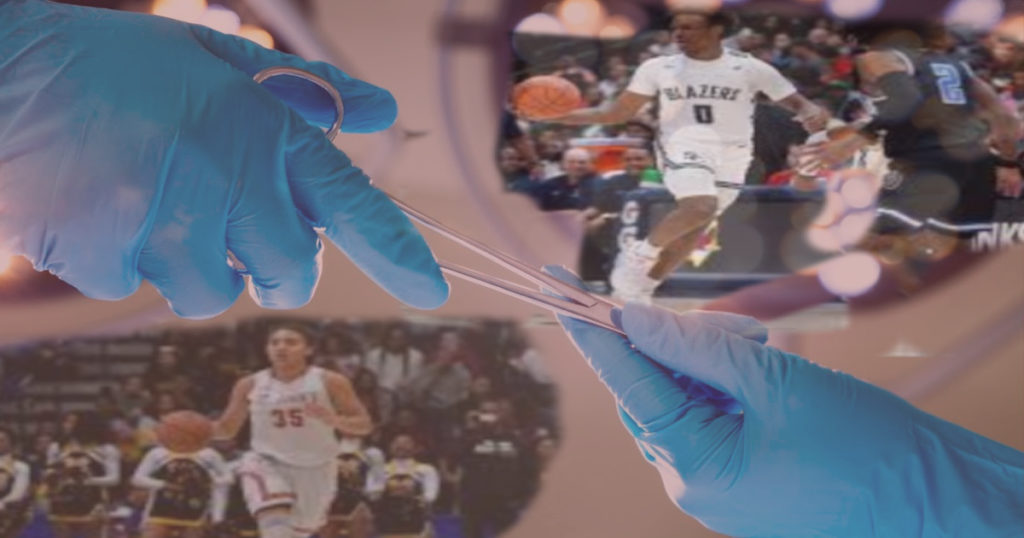By Lila Dubois
The Unfortunate Cost Of Being The Best: Azzi Fudd And Bronny James
High school basketball sensation, Azzi Fudd, made recent headlines for maintaining her number one recruit status and committing to UConn after recovering from ACL and MCL tears in her right knee. She earned the ESPN headline “Azzi Fudd is Unbreakable” and a well-deserved cover story on her journey to become what seems will be one of the greatest basketball players of all time.
Son of Lebron James and an already four-star recruit, Bronny James recently tore his meniscus, forcing the high school sophomore off the court for the rest of the season.
Both Fudd and James worked tirelessly on their game pre-injury, and Fudd worked equally as hard to recover and catch up afterward. Both are revered and viewed as shining examples of the ferocity and strength of the human spirit.
We praise these players, and others like them, for their toughness and grit, for their willingness to push through the pain, to get back out on the court, and compete at all costs. And in many ways, of course, this adulation is deserved. The sacrifices these young athletes make and their mental fortitude is inspiring. The culture of sport tells us this tenacity is to be valued above all else.
But are Fudd and James actually doing what’s best for their athletic career? Are they actually doing what should be celebrated?
Youth athletes today are spending exponentially more hours training and specializing earlier than any generation before. Athletes practice harder and longer. They get better. Everyone else has to practice harder and longer to keep up, and the cycle continues. How could you possibly take a break when your competition for the college spot is doing three-a-days all summer long?
6 Things Parents Need To Know About Youth Sports Specialization
It’s an intractable problem. It seems like you must practice and be the best to make that top spot, make the high school team, and play in college. But then, by the time you get there, you’re too beaten up to play well, if at all. The NBA recorded an all-time high of over 5,000 injuries in the 2018-19 season, citing overly worked as youth athletes as one of the main culprits. It was chronicled in a great ESPN article, “Ticking Time Bombs.” It begs the question, what good is making it to the NBA if you’re too injured to play? What good is making the college team, or even the local club team, if you must break your body to do so?
While it seems to go against the 10,000 hours rule and practice makes perfect, there is an adjustment the sports tract must make to keep its players healthy and to perform: take breaks. Take breaks to play another sport, move another way, build different muscles, open the mind to new tactics and ideas, or even stop sports altogether occasionally, cross-training or otherwise, and just rest. I know, God-forbid – just rest.
There should not be shame in working smarter and working more joyfully for the fun of a game – rather than pounding the pavement, killing ourselves, in the name of working harder. If we address the stigma around what “working hard” really means, we can change the pattern of our athletes’ health and longevity for the better.
